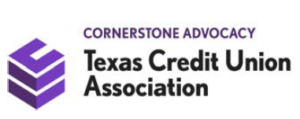Stay Informed
Texas cannot afford the credit card chaos SB 2026/HB 4124 and HB 4061/SB 2056 will cause. Small businesses cannot afford the new costs, cardholders will not tolerate the loss of guaranteed card acceptance, convenience and privacy these new changes will bring, and community banks and local credit unions’ ability to provide critical benefits and services to their members, like access to free- and low-credit banking, will vanish – just so corporate mega-stores and nationwide convenience chains can pocket more money. The current credit and debit card processing system works and provides a valuable service by facilitating efficient purchases, universal acceptance, and state-of-the-art protections against fraud and personal identity theft.
Sign Up TodayAvoid Credit Card Chaos
The Texas Credit Card Chaos bills would bring about credit card chaos for consumers, small businesses, community banks, and local credit unions – here’s why:
Resources
Our Local Texas Partners




Paid for by the Electronic Payments Coalition www.electronicpaymentscoalition.org 1747 Pennsylvania Ave. Washington, DC 20006



